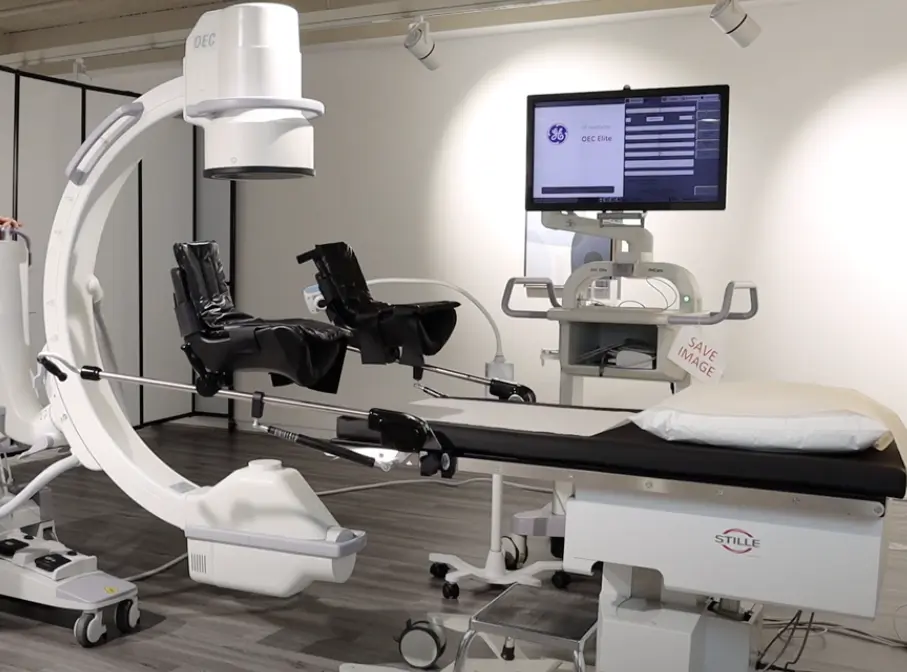HSG is an x-ray examination of the uterus and fallopian tubes using a special form of low-dose x-ray called fluoroscopy and iodinated contrast material (a liquid containing iodine that is visible to x-rays).
What is an HSG exam for?
The most common reason for an HSG evaluation is to help your physician diagnose the cause of subfertility/infertility or repeat miscarriages. This procedure specifically looks for blockages of the fallopian tubes, but can also provide information about the uterine cavity, such as the shape and potential scarring.
This exam should NOT be performed if:
- You think you may be or are pregnant
- You have a pelvic infection
- If you have any allergies or adverse reactions to iodinated contrast material.
How to prepare for an HSG exam –
The exam should take place between 7-10 days after the beginning of your last menstrual period. Unlike other procedures, you can eat and drink as per usual on the day of the test. An HSG test requires very little preparation from your end! It is important to make sure you ask any questions about the procedure in advance with your physician.
- Ibuprofen is recommended several hours prior to the test to decrease possible discomfort.
During the procedure
- The duration of the procedure can vary but is usually 30-45 minutes.
- You will be positioned on the exam table in the same way you would be positioned for a gynecologic exam with your back on the exam table, knees bent, and feet supported up on footrests.
- The radiologist will insert a speculum into the vagina and insert a catheter into the uterus. The speculum is then removed, and contrast material is infused through the catheter while images are taken.
Insertion of the catheter and/or infusion of contrast material may cause some discomfort and pain. Pain ranges by person and anesthesia for this procedure can be requested.
After HSG – Next Steps:
This is considered an outpatient procedure. Once you are ready you may go home and resume normal activities.
- You may experience spotting (bleeding) and cramps for 1 day after the procedure.
- Tylenol/ibuprofen may be taken as indicated.
- If you experience increased pain, fever, or heavy bleeding after the exam, contact your physician and care team immediately.
Why New Hope?
New Hope Fertility Center is home to world-renowned fertility specialists. We custom-design fertility treatments for the individual to increase the chances of a successful pregnancy. Our specialists believe in putting the patient first and being with them through every step of the fertility journey. Our team is well-versed in helping women of all ages reach their fertility goals and we are passionate about educating, and supporting our patients throughout their journey. If you want compassionate fertility care, New Hope is the right place for you. Call us at (347) 970-8479 or schedule your initial consultation today!

